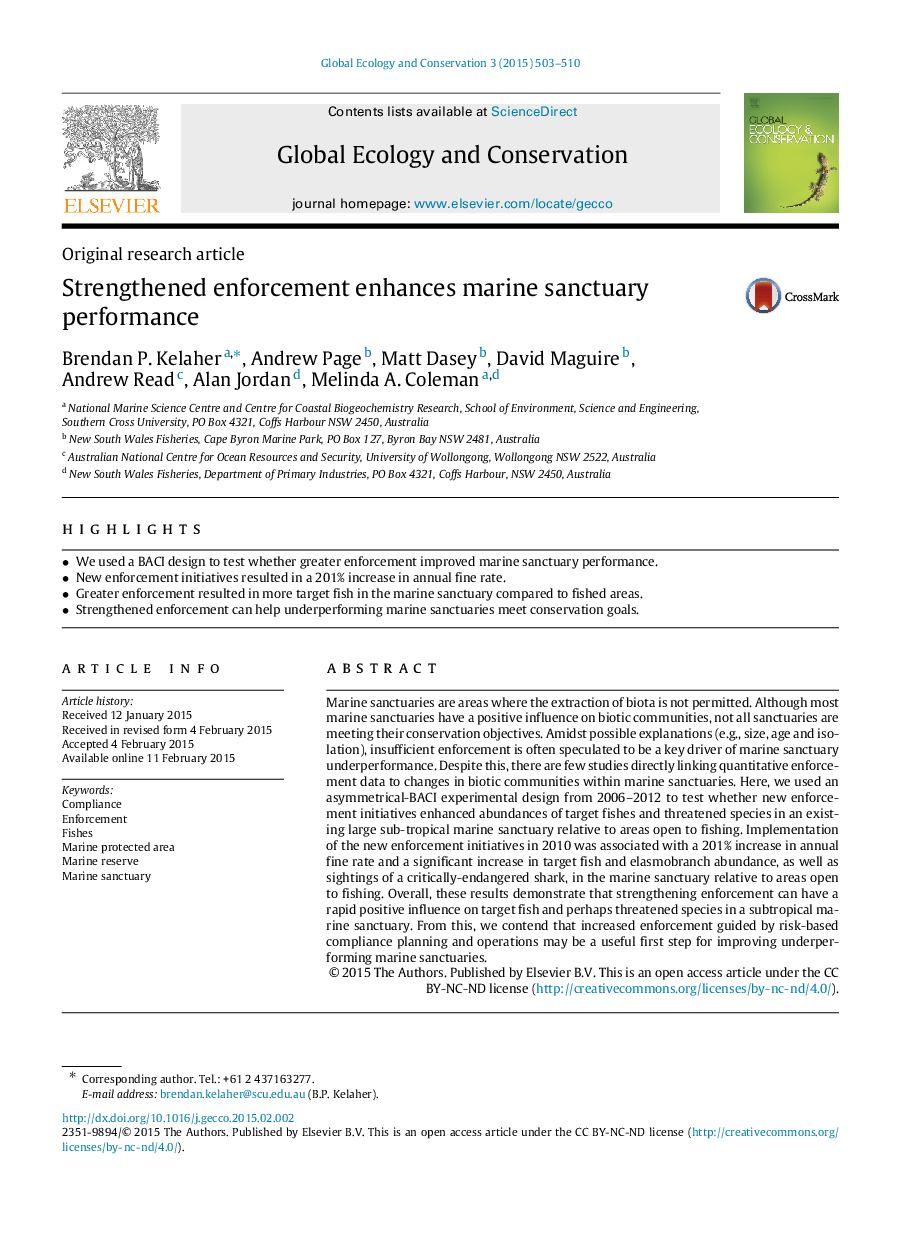| کد مقاله | کد نشریه | سال انتشار | مقاله انگلیسی | نسخه تمام متن |
|---|---|---|---|---|
| 4379585 | 1617664 | 2015 | 8 صفحه PDF | دانلود رایگان |
• We used a BACI design to test whether greater enforcement improved marine sanctuary performance.
• New enforcement initiatives resulted in a 201% increase in annual fine rate.
• Greater enforcement resulted in more target fish in the marine sanctuary compared to fished areas.
• Strengthened enforcement can help underperforming marine sanctuaries meet conservation goals.
Marine sanctuaries are areas where the extraction of biota is not permitted. Although most marine sanctuaries have a positive influence on biotic communities, not all sanctuaries are meeting their conservation objectives. Amidst possible explanations (e.g., size, age and isolation), insufficient enforcement is often speculated to be a key driver of marine sanctuary underperformance. Despite this, there are few studies directly linking quantitative enforcement data to changes in biotic communities within marine sanctuaries. Here, we used an asymmetrical-BACI experimental design from 2006–2012 to test whether new enforcement initiatives enhanced abundances of target fishes and threatened species in an existing large sub-tropical marine sanctuary relative to areas open to fishing. Implementation of the new enforcement initiatives in 2010 was associated with a 201% increase in annual fine rate and a significant increase in target fish and elasmobranch abundance, as well as sightings of a critically-endangered shark, in the marine sanctuary relative to areas open to fishing. Overall, these results demonstrate that strengthening enforcement can have a rapid positive influence on target fish and perhaps threatened species in a subtropical marine sanctuary. From this, we contend that increased enforcement guided by risk-based compliance planning and operations may be a useful first step for improving underperforming marine sanctuaries.
Journal: Global Ecology and Conservation - Volume 3, January 2015, Pages 503–510
